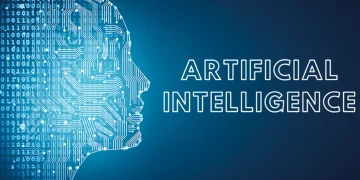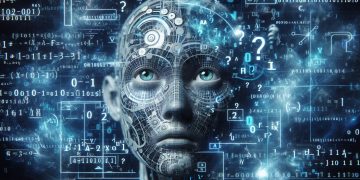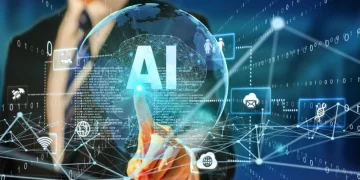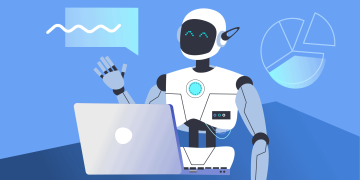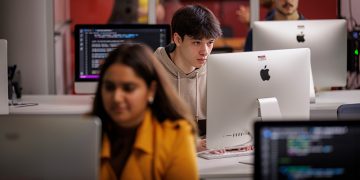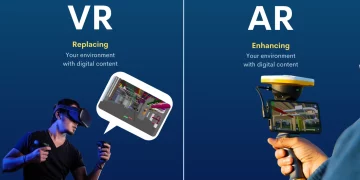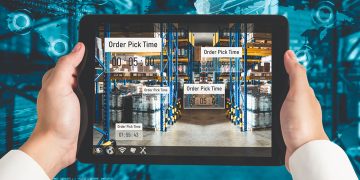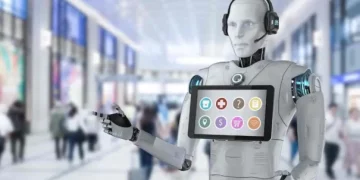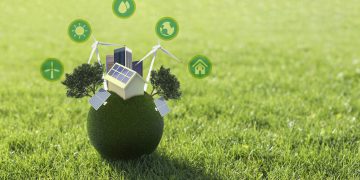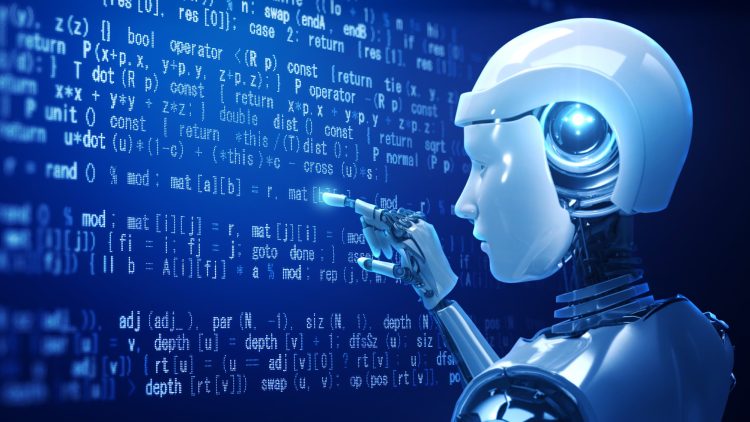1. Introduction: A Defining Transformation
The story of human progress has always been the story of tools. From the invention of the wheel to the rise of the steam engine, every technological leap has reshaped how people work, communicate, and imagine the world. Today, Artificial Intelligence (AI) stands as the latest—and perhaps the most transformative—tool humanity has ever created. Unlike previous machines, AI does not merely extend our physical capacity; it extends cognition itself. It allows computers to learn, infer, predict, and sometimes even create.
The world has entered what many scholars call the Fourth Industrial Revolution, characterized by the fusion of digital, physical, and biological systems. At its core lies AI: the technology enabling self-driving cars, virtual assistants, predictive medicine, algorithmic trading, and generative design. This revolution is not happening in isolation but within a complex web of global economies, political rivalries, and ethical debates. Understanding the rise of AI, therefore, requires tracing its origins, exploring its mechanics, examining its impact, and confronting its challenges.
2. Historical Roots of Artificial Intelligence
2.1 From Logic to Learning
Artificial Intelligence did not emerge suddenly in the 21st century; its conceptual roots stretch back to ancient philosophical debates about the nature of reason. Greek thinkers such as Aristotle formulated principles of logic that centuries later became the foundation for computational algorithms.
In the 20th century, pioneers like Alan Turing, Claude Shannon, and John von Neumann laid the groundwork for digital computation. Turing’s 1950 paper “Computing Machinery and Intelligence” asked the now-famous question: Can machines think?—an inquiry that remains as provocative today as it was revolutionary then.
The 1956 Dartmouth Conference is often considered the birth of AI as an academic discipline. Early optimism promised machines that could “simulate every aspect of human learning.” Yet progress proved uneven. After periods of rapid discovery came the so-called “AI winters” of the 1970s and 1980s, when limited computing power and overambitious expectations led to disillusionment.
2.2 The Data Revolution and Machine Learning
The revival of AI in the 2010s was fueled by three converging forces: massive data availability, exponential growth in computing power, and breakthroughs in machine learning algorithms—particularly deep learning. These systems, inspired by the structure of the human brain, could analyze vast datasets to recognize patterns, translate languages, and even master complex games such as Go and StarCraft.
For the first time, AI moved from theoretical aspiration to commercial application. Cloud computing platforms, open-source libraries, and specialized hardware (such as GPUs and TPUs) made machine learning accessible to industries worldwide. The result was an explosion of innovation—from recommendation systems to medical diagnostics—that marked the beginning of AI’s industrial revolution.
3. Anatomy of Intelligence: How AI Works
At its core, AI is about pattern recognition and decision-making. It encompasses multiple subfields:
- Machine Learning (ML): Algorithms that learn from data without being explicitly programmed.
- Deep Learning: Neural networks with multiple layers capable of hierarchical pattern extraction.
- Natural Language Processing (NLP): Systems that understand and generate human language.
- Computer Vision: AI’s ability to interpret visual information from the world.
- Reinforcement Learning: A trial-and-error process that trains agents through reward feedback.
What distinguishes modern AI from traditional programming is autonomy. Instead of being told exactly what to do, an AI system can infer patterns, adapt to new data, and optimize its performance over time. This makes AI flexible but also opaque—creating the so-called “black box problem,” where even developers struggle to explain how complex neural networks arrive at certain decisions.
4. AI and the Global Economy
4.1 Productivity and Automation
Economists estimate that AI could add over $15 trillion to global GDP by 2030. Its primary driver is productivity growth. From manufacturing robots to algorithmic logistics, AI enables companies to produce more with fewer resources. Tasks once considered uniquely human—legal analysis, translation, design—are now being partially automated.
However, this transformation raises questions about employment. While AI creates new opportunities in data science, robotics maintenance, and creative industries, it also displaces routine jobs in transportation, customer service, and manufacturing. The challenge for governments is to manage this transition through retraining, education, and social safety nets.
4.2 The New Capital: Data
In the AI-driven economy, data has become the new oil—valuable, extractable, and highly contested. Companies like Google, Amazon, and Tencent hold vast datasets that give them competitive advantages in developing smarter algorithms. This concentration of data power creates new forms of economic inequality, as smaller firms struggle to compete and nations without strong digital infrastructures risk being left behind.
The rise of AI capitalism thus mirrors earlier industrial revolutions, where technological monopolies shaped global wealth distribution.
5. AI and Society
5.1 Everyday Integration
AI is no longer confined to research labs; it permeates daily life. Smartphones use AI to recognize faces and voices; streaming platforms curate personalized entertainment; smart homes adjust lighting and temperature based on human behavior.
These conveniences, however, come at a cost: personal data collection. The line between service and surveillance grows increasingly blurred. As privacy becomes a currency, societies must ask whether the comfort provided by AI outweighs the erosion of anonymity.
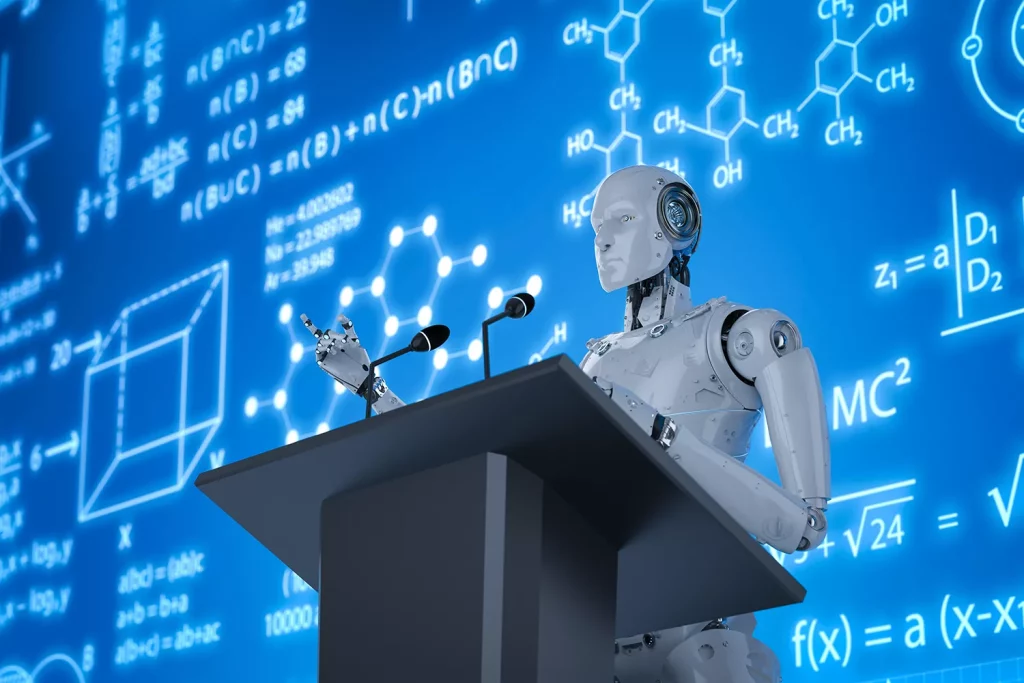
5.2 Ethics and Bias
AI systems reflect the data they are trained on—and data reflects society’s biases. When recruitment algorithms favor men over women or facial recognition systems misidentify people of color, the problem is not the machine but the underlying social patterns it amplifies.
Efforts to ensure fairness, accountability, and transparency in AI have led to the emergence of ethical AI frameworks, including guidelines from the EU, UNESCO, and major corporations. Yet implementation remains inconsistent, particularly in contexts where ethical standards clash with commercial or political interests.
5.3 Human Creativity in the Age of Algorithms
Generative AI models, such as those producing art, music, or text, challenge the traditional boundaries between human and machine creativity. When an AI composes symphonies or paints digital masterpieces, who owns the art—the programmer, the user, or the algorithm itself?
Rather than replacing artists, AI may serve as a collaborator—a tool that expands creative possibilities. But this collaboration also demands rethinking authorship, originality, and value in a world where machines can imitate human imagination.
6. Geopolitics of Artificial Intelligence
AI is not merely a technological revolution; it is a strategic one. Nations view AI as critical to economic competitiveness, military superiority, and social governance. The “AI arms race” between the United States and China exemplifies how innovation has become intertwined with national power.
The U.S. leads in foundational research, chip design, and cloud services, while China leverages state-driven data collection and industrial policy to accelerate deployment. Meanwhile, Europe positions itself as an ethical regulator, advocating for human-centered AI.
Smaller nations, such as Singapore and Israel, focus on niche innovation ecosystems. This fragmented landscape raises concerns about global coordination, digital colonialism, and the risk of technological inequality.
7. The Ethics of Intelligence
7.1 Responsibility and Accountability
Who is responsible when AI makes a mistake? When a self-driving car causes an accident or an algorithm denies a loan unfairly, accountability becomes diffuse. Legal systems worldwide are struggling to define liability in the age of automation.
Ethical design requires explainability—the ability to understand how AI reaches decisions—and auditability, ensuring external scrutiny. Transparency, however, often conflicts with proprietary interests, as companies guard their algorithms as trade secrets.
7.2 AI and Human Autonomy
A deeper ethical issue concerns autonomy. The more decisions AI makes on behalf of humans, the more agency we surrender. Recommendation algorithms shape what we read, watch, and even believe. If human choices are increasingly mediated by algorithms optimized for engagement rather than truth, democracy itself may be at risk.
To preserve human autonomy, societies must foster digital literacy and critical thinking, ensuring that citizens remain active participants, not passive consumers, in the AI age.
8. Future Frontiers
8.1 Artificial General Intelligence (AGI)
The ultimate goal of AI research is to create machines capable of general intelligence—systems that can perform any intellectual task a human can. While today’s AI excels in narrow domains, AGI would possess flexible reasoning, creativity, and emotional understanding.
Experts are divided on when (or whether) AGI will emerge. Optimists predict breakthroughs within decades; skeptics warn that human cognition is too complex to replicate. Regardless, the pursuit of AGI forces us to confront profound philosophical questions about consciousness, personhood, and the nature of intelligence itself.
8.2 AI for Good
Beyond economic and military applications, AI holds immense potential for social good: diagnosing diseases, optimizing energy use, predicting natural disasters, and preserving endangered species. The challenge lies in aligning technological progress with human values—a task that requires interdisciplinary collaboration among scientists, ethicists, policymakers, and communities.
9. Conclusion: Intelligence as a Shared Destiny
The rise of artificial intelligence represents more than technological progress—it marks a turning point in human history. As machines learn to reason, humans must learn to coexist with them. The coming decades will determine whether AI becomes a tool of empowerment or control, equality or domination.
The industrial revolutions of the past reshaped economies; this one reshapes humanity itself. The task before us is not to stop the rise of AI, but to guide it—to ensure that intelligence, whether biological or artificial, serves the flourishing of all life on Earth.


